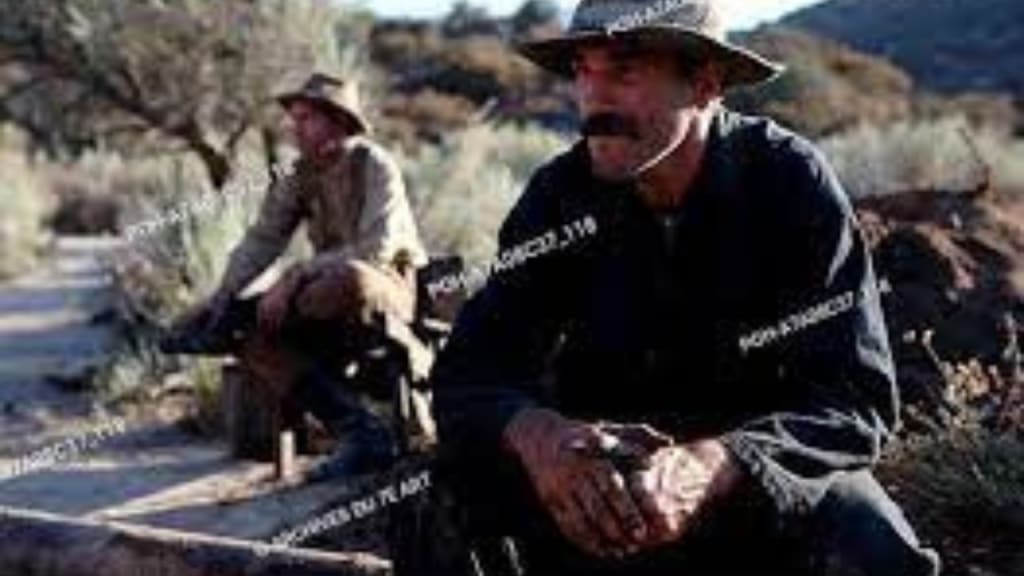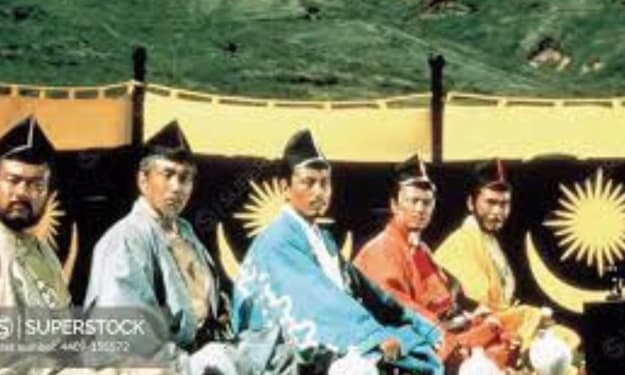There Will Be Blood (2007) Review
2007 American epic period drama film written and directed by Paul Thomas Anderson

There Will Be Blood, directed by Paul Thomas Anderson and released in 2007, is a masterful exploration of greed, ambition, and power. The film is loosely based on Upton Sinclair's novel Oil!, and follows the story of an oil prospector, Daniel Plainview, played by Daniel Day-Lewis, as he rises to power and fortune in the early 20th century.
The film is set in California during the oil boom of the late 19th and early 20th centuries. Daniel Plainview is a driven and ruthless man, who will stop at nothing to achieve his goals. He travels from town to town, striking deals with landowners and drilling for oil, all the while growing increasingly wealthy and powerful.
The film is notable for its incredible performances. Daniel Day-Lewis delivers a tour-de-force performance as Plainview, capturing the character's intensity, ambition, and deep-seated anger. Paul Dano is also excellent as Eli Sunday, a charismatic and manipulative preacher who becomes Plainview's rival. The chemistry between the two actors is electric, and their scenes together are some of the film's most memorable.
The film's cinematography is outstanding. The film was shot by Robert Elswit, who won an Oscar for his work on the film. The film's use of natural lighting and wide shots gives it an epic, sweeping quality, and the camera work is often breathtaking. The film's opening sequence, which depicts Plainview's early years as a prospector, is a particular standout.
The film is also visually stunning. Director Paul Thomas Anderson creates a stark and desolate landscape, emphasizing the isolation and loneliness of the characters. The film's score, composed by Jonny Greenwood, is haunting and atmospheric, adding to the film's sense of foreboding and unease.
One of the film's most striking themes is the destructive nature of greed. Plainview's unrelenting pursuit of wealth and power leads him to betray his friends and family, and ultimately leads to his own downfall. The film is a powerful critique of the American dream, suggesting that the pursuit of wealth and success can come at a great cost to ourselves and those around us.
The film's final scene, in which Plainview confronts Eli Sunday in a church, is a masterful piece of filmmaking. The tension between the two characters is palpable, and the scene builds to a shocking and violent climax. The scene is a testament to the film's expert pacing and storytelling, as well as the incredible performances of the two actors.
There Will Be Blood is a film that demands multiple viewings. The film is complex and multi-layered, and there are many details and nuances that are easy to miss on first viewing. The film's use of symbolism and metaphor is particularly effective, with references to everything from the Bible to Greek mythology.
The film's portrayal of American history is also noteworthy. The film depicts a time of great change and upheaval, as the country was rapidly industrializing and urbanizing. The film captures the optimism and energy of the period, but also the darker side of progress, including exploitation, corruption, and violence.
Finally, the film's exploration of masculinity is also noteworthy. Daniel Plainview is the archetypal American male, rugged and self-sufficient, but his pursuit of wealth and power ultimately leads to his own destruction. The film raises questions about the nature of masculinity and its relationship to power, and suggests that traditional models of masculinity may be outdated and destructive.
There Will Be Blood is a film that rewards patience and attention. The film is long and at times slow-moving, but its slow burn is essential to its impact. The film is a powerful reminder of the dangers of unchecked ambition and greed, and a masterpiece of American filmmaking.





Comments
There are no comments for this story
Be the first to respond and start the conversation.